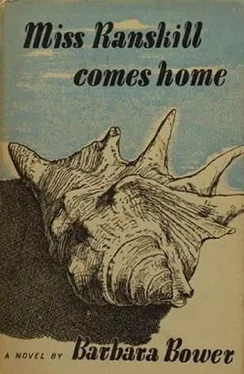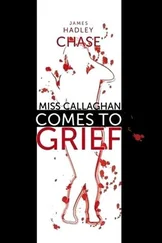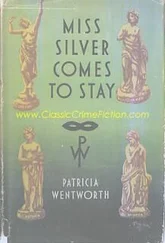There was a relief-nibbed pen on the desk, an inkstand and a blotter. Somewhere in the crowded pigeon-holes there would be paper and envelopes. Marjorie could not possibly mind if she looked for them. They had often shared desks at St Catherine’s.
There was plenty of paper but no new envelopes. The last pigeon-hole held a bundle of old ones, a packet of sticky labels, some ration books, and a stiff folded card bearing Marjorie’s name, address and a number.
‘Never mind,’ thought Miss Ranskill, ‘I’ll ask for an envelope later.’
She sat down at the desk and began to write to her sister – ‘Dear Edith–’
It was difficult to know how to begin. Stiff little sentences formed themselves in her mind. ‘I hope you are very well…. I hope this letter will find you…. You will be surprised to hear from me after so long, but I have just returned from a desert island…. I would have written before but have been so far away from post offices.’ Anything she could write would sound incredible. Her arrival might be inconvenient as well, because her death would have been presumed years ago, and Edith, as sole legatee, would have readjusted her own life, disposed of most of Nona’s possessions, and settled herself somewhere in a house for one. She would be playing the part of a brave woman with a great sorrow – the shock of her sister’s sudden and terrible death. The letter would steal thunder from the sorrow and set Edith to the counting of tea-cups and the pairing of sheets.
Miss Ranskill crumpled the card in her left hand and stirred up the ink with her pen.
The door opened and Marjorie strode in.
‘I’ll be forgetting my head next. I thought I’d got all the beastly lists. Can I come to the desk for a sec?’
Miss Ranskill got up from the chair.
‘I’m so sorry,’ she said, ‘I thought you wouldn’t mind my writing to Edith. I’ve just heard our house is in a prohibited area or something, and–’
‘You would think,’ said Marjorie, rootling through a pigeon-hole, ‘that they could remember to bring their own lists, wouldn’t you. No sense of responsibility – that’s their trouble.’
She picked up the book Miss Ranskill had taken down and looked disapprovingly at the title. ‘ That shouldn’t be here.’
‘I’m so sorry, I’ll put it back.’
A piece of crumpled card slipped from between the visitor’s fingers as she held out her hand for the book.
Marjorie pounced on it. ‘I do like a clear desk,’ she announced as she began to smooth out the cardboard. ‘And it really is important to keep even waste-paper flat: it saves the salvage people such a lot of trouble.’
Miss Ranskill waited for further reproof. It had always been the same at school when ink or an india-rubber or blotting-paper pellets in an ink-well had stirred Marjorie to speeches.
‘Gosh!’ she exclaimed now. ‘My identity card. My identity card, Nona, what have you done to it?’
‘I’m awfully sorry. I think I was just fiddling with it while I was trying to write that letter. I didn’t know I’d got anything in my hand. Is it something that matters?’
‘Something that matters! I ask you!’
Marjorie’s cheeks were pinker than usual, and then she gave a little jerk of the head that had long been familiar to Miss Ranskill. Better nature, self-conscious better nature and good sportsmanship were going to take the place of annoyance. Fair play would be called up at any moment.
‘But, of course, it’s my fault, really. Serves me jolly well right for being so careless. I always do carry it in my wallet, but I was a bit fagged last night. Not that that’s any excuse. My being fagged doesn’t matter an atom. When one thinks of Russia.’
Marjorie’s chin went up and she straddled her legs slightly as though she were taking firm stance on the burning deck. The gesture suggested a salute, and Miss Ranskill wondered why it was necessary.
‘Now where’s that list?’ Her friend rummaged in a pigeon-hole, snatched what she wanted and hurried to the door.
‘Tea will be ready in two ticks,’ she announced. ‘If you don’t hurry up, we’ll have wolfed all the buns. Heavens! what’s that?’
One of her competent fingers was pointing to the dressing-table with its litter of rust-red hair.
‘It was so long and shaggy,’ said Miss Ranskill. ‘I’d meant to go to a hairdresser before I came, but–’
‘Aren’t you a scream!’ Marjorie delivered her last speech from the doorway. ‘Good old happy-go-lucky Nona. So long! See you at tea. After that we’ll have no end of a jaw.’
The door shut with a bang and Miss Ranskill began to collect her rags of hair from the toilet-table. Before she had finished, the telephone-bell gave a brief tinkle and she snatched up the receiver.
She had always been one of those people who never see a telegraph boy, even in a strange town, without expecting delivery of an important wire, and so it never occurred to her, even when a man’s voice asked, ‘Is that you, darling?’ that the call was not for her. ‘I say, this is rather important. Are you alone?’
Before Miss Ranskill could open her mouth she heard the unmistakable voice of Marjorie replying, into a mouth-piece in some other room. ‘Yes, yes. What is it, Harry?’
Here Miss Ranskill should, and would, had she not been for so long a stranger to the land where people of her kind do not read other people’s letters or listen to other people’s telephone conversation, have hung up the receiver. But her mind was clumsy in this queer new world just as her feet were awkward on a carpeted floor, so she listened as a child might have done.
‘Have you a visitor with you?’
‘Yes, an old school-friend, Nona–’
‘Still in the house?’
‘Yes. Why?’
‘Thank God for that. Now listen. You’ve got to keep her. Make any excuse you like. Get her to stay the night.’
‘But, Harry, it’s Mrs Bostock’s night out and I’ve got my fire-watching and there’s scarcely a thing to eat.’
‘How queer,’ thought Miss Ranskill. ‘Doctor Mallison didn’t seem to want me this morning: now he does, and Marjorie doesn’t.’
It was impossible now not to go on listening. She must discover if she were expected to say goodbye after tea and go. Go where? It didn’t matter so much as all that. She had slept on sand before.
‘I can’t help that. You’ve got to keep her. I’ve just seen White.’
‘White? Oh! Harry, did he give you the sausage meat? I did ring up and he said he’d try to deliver, but–’
‘I don’t mean White, the butcher, I mean White, the police inspector.’
‘Harry! Whatever for?’
‘Well, I don’t want to say too much about anything on the telephone – but – Sure you’re alone?’
‘Yes, I’m speaking from the surgery. Go on.’
‘Well, your old school-friend is wanted by the police. She’s been talking rather oddly in the shops and this morning she did a bolt from the Navy.’
‘Do you mean she’s deserted from the Wrens? Oh! Harry!’
‘I’ll be round as soon as I can, and so will the police.’
‘Harry, I just can’t believe that any St Cat’s girl – It’s too beastly.’
‘It’s not too pleasant for me either. Bye-bye, dear, see you soon.’
A receiver clicked downstairs and the one held fast in Miss Ranskill’s grip became as silent as a sea-shell on a mantelpiece.
What had she said and what had she done and what did the term ‘running away from the Navy’ imply? How could she explain that she had run away from nothing but the sight of her own face in a mirror and the embarrassment it might bring to a nice young man! Marjorie had hinted at desertion, but did women who were rescued from the sea join the Navy automatically? Had the law become an absurdity? Miss Ranskill knew none of the answers, but she was frightened and her head began to ache badly.
Читать дальше












